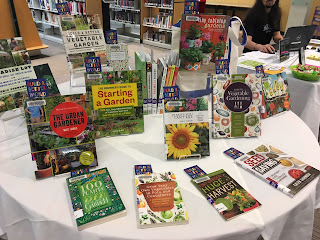We are well into the first week of Worcester Public Library's Summer Reading Program! Our Kickoff on Saturday, June 24th was a hit. As one of our Summer Reading Challenges, patrons told us their favorite part of the kickoff. Here are a few things our patrons said about our event!
"My husband and I came to the kickoff event in the morning. I think the best part about it was how helpful, welcoming, and friendly everyone was. I never saw my husband so enthusiastic to start reading before and even challenged me on how many books he would read. As an avid reader myself, this was a pleasant surprise, and I would like to thank the staff at the library for this inspiration in him. I think we both enjoyed going through the recommended reading table and also liked the gardening table. My only recommendation would be to figure out an easier way for people to be able to check out the recommended reading books from other libraries. Both my husband and I had to go to the info desk for the staff to check them out. The book hold check-out area did not work on these."- Lex P.
"All the new books!" - Cheryl P.
"Two of my favorite parts of today's kickoff were the giveaway prizes and finding out about some of the new online features like OneClickdigital and Freelegal. Great event! Always something new!" - Viryuana M.
"I got me a lovely little water bottle :-)" - Melissa C.
"My favorite part was the fair-like atmosphere and the ability to learn about different parts of the community." - Caitlin M.
"We enjoyed the kick off and are looking forward to starting our summer reading." - Christopher R.
Haven't signed up for Summer Reading yet? Sign up and start earning prizes today!




















